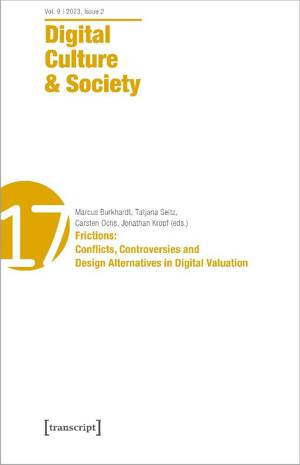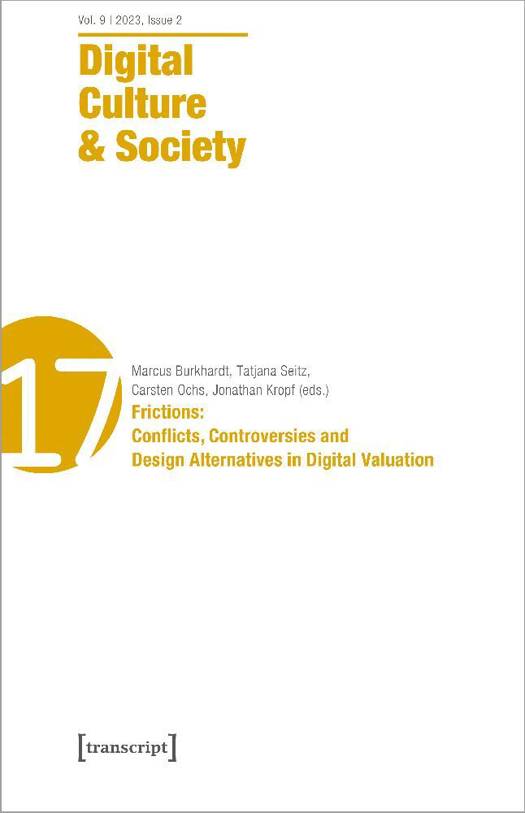
- Retrait gratuit dans votre magasin Club
- 7.000.000 titres dans notre catalogue
- Payer en toute sécurité
- Toujours un magasin près de chez vous
- Retrait gratuit dans votre magasin Club
- 7.000.000 titres dans notre catalogue
- Payer en toute sécurité
- Toujours un magasin près de chez vous
Digital Culture & Society (Dcs)
Vol. 9, Issue 2/2023: Frictions: Conflicts, Controversies and Design Alternatives in Digital Valuation
29,95 €
+ 59 points
Description
Digital technologies are widely considered as drivers of innovation and solution for small and grand challenges alike. In this context »the digital« appears to be problematic only because there is still too little of it: too little digital services in public administration, too little digital learning and teaching etc.
Consequently, policy makers, technologists, and businesspeople alike frequently call for more digitization. The capacity to accumulate, analyze and utilize data is seen as a key factor for leveraging the potentials of digital innovation. Once data was claimed to be without material limits, a »capitalist-colonialist fantasy« became the metaphor naturalizing the next digital revolution.
Spécifications
Parties prenantes
- Editeur:
Contenu
- Nombre de pages :
- 200
- Langue:
- Anglais
- Collection :
Caractéristiques
- EAN:
- 9783837663587
- Date de parution :
- 04-02-25
- Format:
- Livre broché
- Format numérique:
- Trade paperback (VS)
- Dimensions :
- 155 mm x 240 mm
- Poids :
- 356 g






